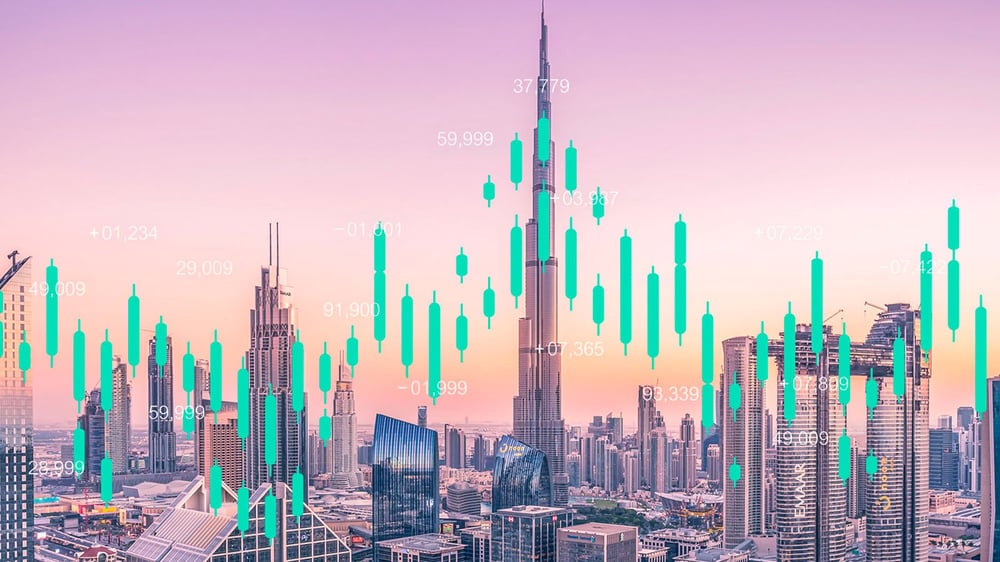The UAE had a solid end to the financial year in 2021. Supported by strong trade recovery, increased tourism and domestic demand from Expo 2020 Dubai and an effective, swift response to the COVID-19 pandemic. The Global Response to Infectious Diseases Index ranked the UAE among the top 10 countries in tackling the COVID-19 pandemic.
This blog takes you through the UAE's coordinated response to the pandemic and five initiatives that strive to take Dubai's economy to new heights.
Dubai Economy 2022: The Post Pandemic Recovery
To better understand the UAE's leadership approach in dealing with the pandemic, a study published by Frontiers in Public Health analysed the response through the Organization for Economic Co-operation and Development's (OECD) Strategic Crisis Management Framework.The Strategic Crisis Management Framework consists of the following 3 phases:
- Preparedness Before A Crisis: The UAE has been developing disaster response systems as early as 2012 through the National Emergency, Crisis, and Disaster Management Authority (NCEMA).
Much like the rest of the world, the UAE could not foresee a pandemic of this magnitude, but response systems were in place. As soon as the severity of the COVID-19 pandemic became apparent, the UAE scaled up its response, allowing for large-scale testing, surveillance, clinical trial development, international collaboration, and vaccine distribution. - Response to Limit Damages: On January 29th, 2020, the Ministry of Health and Prevention revealed the first confirmed cases of COVID-19 in the UAE. Just two days later, the government announced that all instances of COVID-19 would be handled as emergencies and that COVID-19 patients would receive free medical care. The UAE ranked among the top countries in the world for its government's decisive action and rapid response in the early phases of the pandemic.
- Feedback After the Crisis: Although the pandemic is still ongoing in the world, and new variants of the virus emerge, the UAE has already established a post-COVID-19 strategy to offset the pandemic's financial impact.
Dubai Growth: 5 Initiatives Building the Future Economy

The principal mandate of the UAE's National COVID-19 Crisis Recovery Management and Governance Committee, which is made up of officials from ministries, departments, and public enterprises, is to lead the country's economic recovery following the pandemic. For the post-COVID-19 phase, the Committee is planning and identifying key performance indicators for the below sectors.
1. Business Support Package
An Interim Committee formed by the UAE has adopted a plan of 33 initiatives split into 3 phases to boost the economy.
Phase 1: Immediate assistance to business sectors through implementing 15 significant initiatives.
Phase 2: Additional aid to industries to facilitate a speedy economic recovery.
Phase 3: Integrated support to critical industries, allowing the economy to pursue a more sustainable and flexible development path.
2. Financing Priority Industrial Sectors, Start-ups and SMEs
The UAE government approved the Emirates Development Bank Strategy, which commits itself to a portfolio of AED 30 billion to support priority industrial sectors from 2021 to 2025. The strategy will finance over 13,500 SMEs and create 25,000 jobs. Furthermore, the bank is poised to launch an AED 1 billion investment fund for start-ups focused on industrial enterprises.
3. 10-Year Plan to Boost the Industrial Sector
The UAE's 10-year Industrial Strategy, dubbed "Operation 300 bn", intends to empower and strengthen the industrial sector so that it may become the engine of a long-term national economy. By 2031, the strategy plans to boost the industrial sector's contribution to GDP from AED 133 billion to AED 300 billion, helping 13,500 industrial SMEs.
4. Strengthening Foreign Trade and Local Non-Oil Sectors
To improve the country's overseas trade and increase the role of non-oil industries in GDP, the UAE created an 'Export Development Policy' to grow exports and open new international markets. The program will allow the national economy to reap the benefits of the economic rebound in 2021 and beyond.
5. Encouraging The Creative Economy
Dubai’s Creative Economic Strategy intends to increase the creative sectors' contribution to GDP from 2.6% in 2020 to 5% by 2025. Dubai will offer customisable packages, incentives, and innovative, creative incubators to keep up with the quick pace of technological advancements. The UAE also devised a talent attraction and retention strategy to improve the country's appeal to global investors.
The Bottom Line
The UAE's leadership organised an integrated effort throughout the country's different sectors, from the government to healthcare, private to the public sector, and emergency services. This has set a new high standard for leadership and effective public health management worldwide. As the UAE maintains a secure economic landscape with foresight and rapid response systems, the opportunity for new business ventures in Dubai continues to sore. Dubai issued 24,662 new business licences in Q1 2022 alone.
If you consider starting a business in Dubai, why not in the world's #1 business hub? Set up a new company with us at DMCC and we will help you every step of the way, from drafting documents, managing submissions, and helping with translations, to setting up bank accounts, seeking approval, and providing consultancy services.
